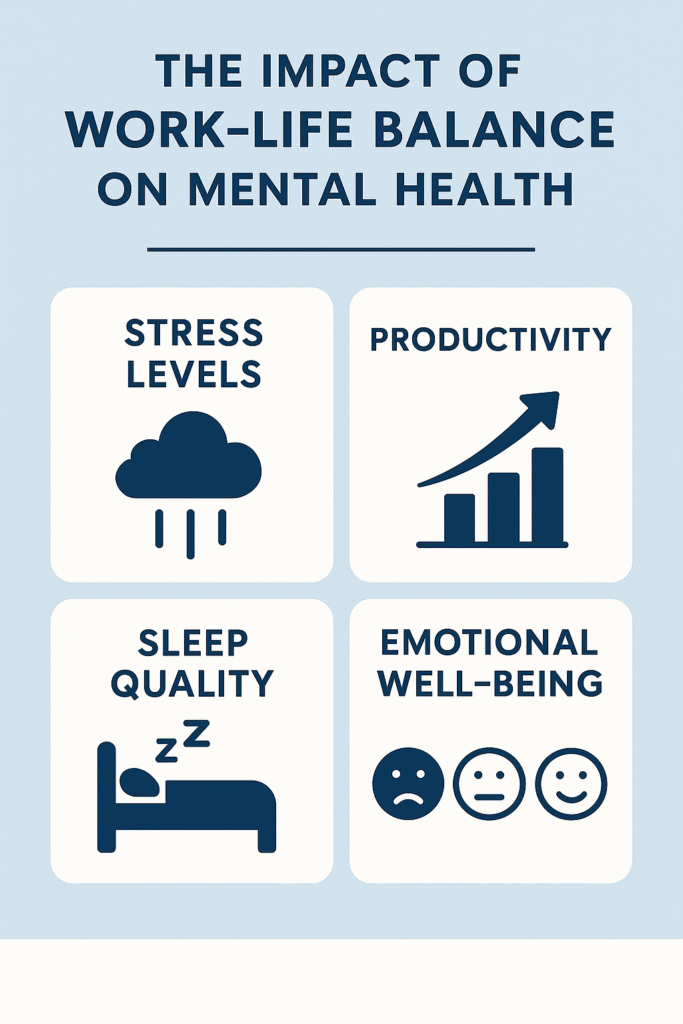
Work-Life Balance: Why It Matters
In today’s fast-paced and hyper-connected world, the line between professional responsibilities and personal life is becoming increasingly blurred. Many people find themselves checking emails during dinner, attending virtual meetings on vacation, or constantly thinking about work even when they’re supposed to be relaxing. Maintaining a healthy work-life balance is no longer just a lifestyle choice—it’s a vital element of mental health, emotional fulfillment, and long-term success. But what exactly is work-life balance, and why does it hold such importance?

Why Work-Life Balance Is Crucial
– Mental Health: When individuals consistently put work before personal needs, they run the risk of experiencing chronic stress, burnout, anxiety, and even depression. A balanced life provides room for mental recharge and emotional resilience.
– Physical Health: Overworking can disrupt sleep patterns, weaken the immune system, and increase the likelihood of health issues like high blood pressure or heart disease. Balance encourages a healthier lifestyle through proper rest and physical activity.
– Relationships: Strong relationships require time and presence. An unbalanced life can cause tension with family and friends, leading to isolation or conflict. Spending quality time with loved ones enriches our lives and provides emotional support.
– Job Performance: Surprisingly, overworking doesn’t always mean higher productivity. Those who maintain a healthy work-life balance are typically more motivated, focused, and creative, producing higher-quality results in less time.
Practical Tips to Improve Work-Life Balance
1. Set Clear Boundaries — Define specific work hours and respect them. Avoid checking work emails or taking calls after hours.
2. Take Breaks — Integrate short mental and physical breaks throughout your day to reduce fatigue and increase concentration.
3. Prioritize Self-Care — Engage in activities that rejuvenate your body and mind, such as yoga, journaling, or nature walks.
4. Learn to Say No — Respect your limits and don’t take on more than you can manage. Declining certain tasks can protect your time and energy.
5. Use Your Time Wisely — Time management tools and task prioritization can help you work more efficiently.
6. Seek Flexibility — If possible, opt for flexible work arrangements or remote options that allow you to adjust according to personal needs.
7. Reflect Regularly — Take time to evaluate your current balance. What’s working well? What needs to change? Awareness is the first step to improvement.
How Do You Improve Your Work-Life Balance?
Everyone’s work-life balance looks different. What matters is finding what works for *you*. Do you take daily walks? Shut off notifications at night? Practice mindfulness? Share your strategies or struggles in the comments below. Your experience might just help someone else on their journey.
Further Reading / Sources:
• Harvard Business Review – Balancing Work and Life
• Mayo Clinic – Job Burnout: How to Spot It and Take Action
• Mental Health Foundation – Work-Life Balance Tips